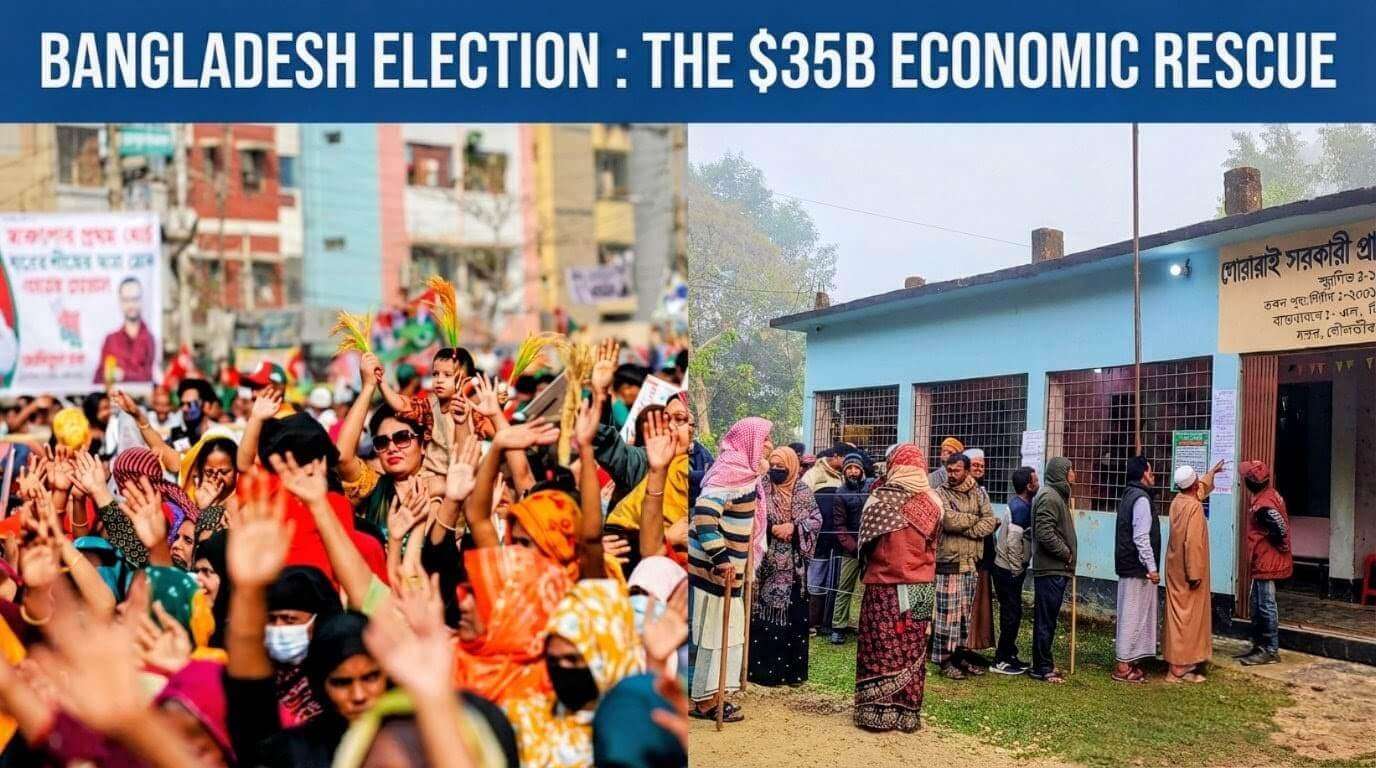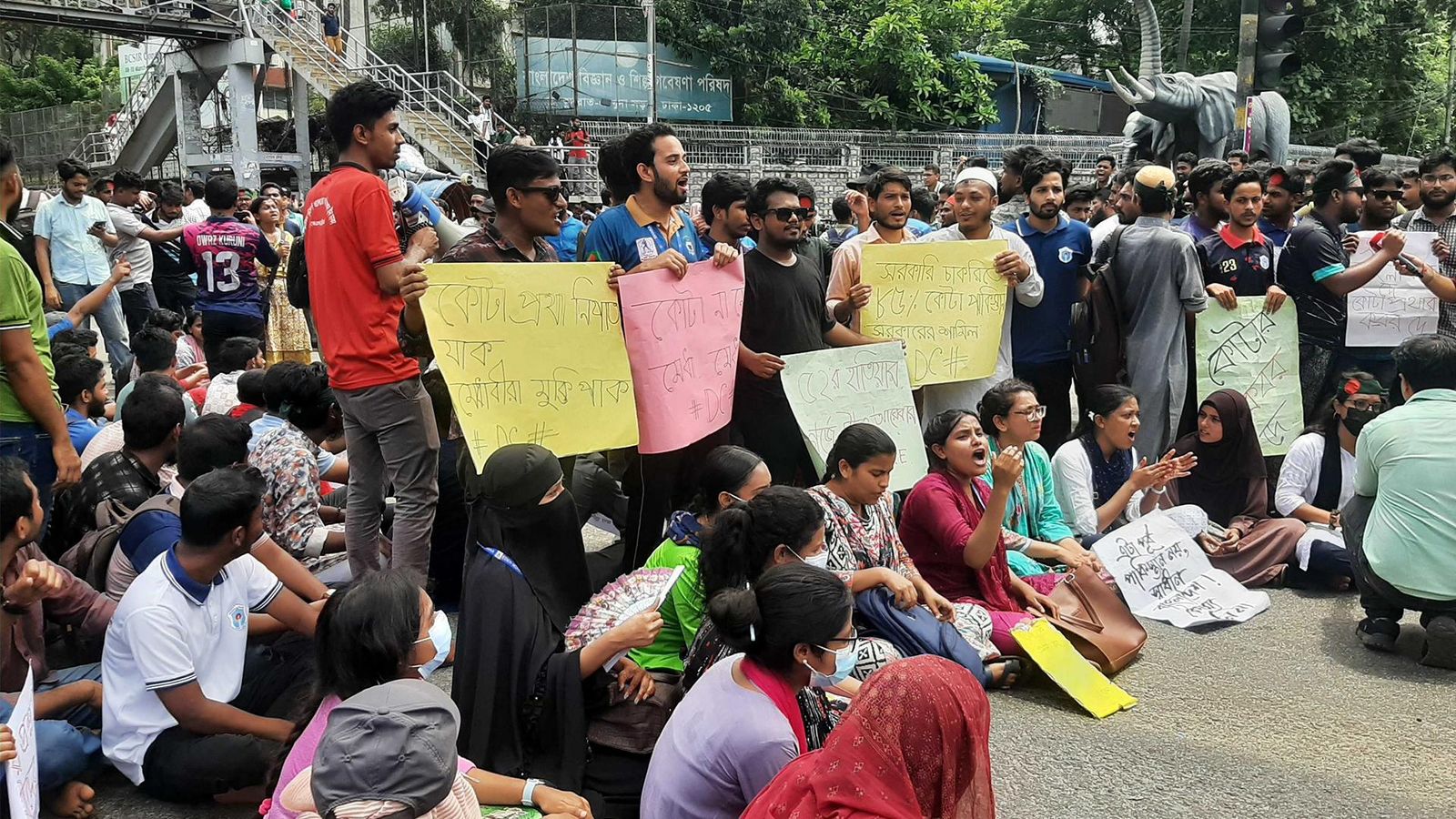Thousands of university students in Bangladesh are protesting a recruitment system they claim unfairly prioritizes children of war heroes and specific groups for lucrative government positions. They argue the system is discriminatory and demand a merit-based recruitment process. Currently, one-third of these jobs are reserved for descendants of those who fought for independence in 1971, as well as for women, ethnic minorities, and individuals with disabilities.
Critics say the system unfairly benefits the children of pro-government groups that support Prime Minister Sheikh Hasina, who won her fourth straight election in January.
Ms Hasina is the daughter of Bangladesh's founding leader Sheikh Mujibur Rahman.
Earlier this week, students blocked roads and highways in the capital Dhaka and other major cities, bringing traffic to a halt. The protests have been called the Bangla Blockade.
Some laid logs on a railway track in the capital, disrupting train services to northern parts of the country.
Bangladesh's top court temporarily suspended the system on Wednesday, but protests are expected to continue until it is permanently removed.
The system was reinstated by a separate court just last month. It had been halted since 2018, following weeks of protests.
"We will not return to classrooms until our demand is met," protest leader Rasel Ahmed told the AFP news agency.
"My demand is not to cancel the system. My demand is for quota reform," one protester told BBC Bangla.
Another student said he would keep protesting until a "permanent solution" is found.
Government jobs are highly coveted in Bangladesh because they pay well. In total, more than half of the positions - amounting to hundreds of thousands - are reserved for certain groups.
Earlier this month, Ms Hasina condemned the protests, saying students were "wasting their time", while adding there was "no justification for the anti-quota movement".
Bangladesh, which was once one of the poorest countries in the world, is now one of the fastest-growing economies in Asia.
Its per capita income has tripled in the last decade and the World Bank estimates that more than 25 million people have been lifted out of poverty over the last two decades.
But its economy spun into turmoil in mid-2022 following the pandemic and the global economic slowdown.








.svg)


